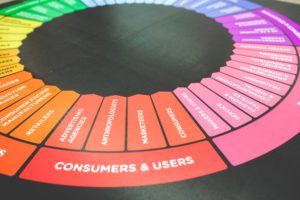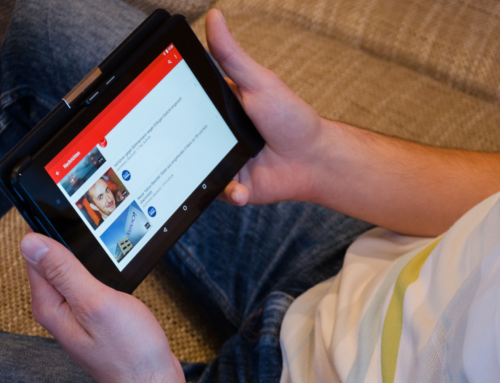What trends do you see in training market in Portugal? Which topics of workshops and trainings are the most popular?

In Portugal, right now, we are still focused a lot on customer service. This is still a pressing matter because every business has to offer good service. So, if you go to a big supermarket, Ikea, or even to a small company, they are now much more concerned about Customer Experience (CE) paying special attention to quality perspective: how you can be really open to what the client wants and have a really good understanding of his/her needs. It has changed from the basic customer service, to how you can make a difference in the client’s experience while delivering a service or a product. Trainings are much more focused on understanding customers profiles and learning how to provide services that match those profiles.
Another distinctive trend you can see in big companies is related to the topic of leadership. Trainings are now focused on supporting leaders in the process of dealing with the complexity of human nature. It’s because nowadays there is more diversity in organisations. Different age, experience, skills, career expectations, motivations. And there is a constant concern about how to recognize and promote Talent within the companies and how to keep employees motivated, especially among younger generations, and minimize the turnover. The younger generations want to have “space”, where they can be heard and to experience different challenges and learn new things every day. But if they don’t see any possibilities to develop into their organisation, they start looking for other job opportunities outside. This is the reason why leaders now have to be more strategic in the area of development management. They should be focused on one-on-one meetings, giving and receiving feedback, creating individual and team development plans that comply with their business goals.
So, this topic is directly related to effective communication issues: how to be assertive, send clear messages, deal with resistance etc. Right now, some companies have already started certain programmes that are not so much in line with traditional leadership training courses. They organise workshops that enable the middle and top management to gain real experience in a specific topic by practicing new skills instead of learning theoretical models.

Currently in our society there is an overwhelming pressure to do more in less time and with better quality. Because of that our clients request for time management trainings a lot. Employees feel stressed, crippled by all the tasks and powerless in the clash with everyday challenges. Luckily some organisations are aware that they have to help employees to organize their priorities, to «say no», to delegate tasks and to learn good practices in dealing with the pressure to be online all the time. We see more and more cases of burnout, even among young generations. So, a good idea is to add stress management and mindfulness techniques to time management workshops. Of course, what the organisation needs to change this kind of difficult situations is not only trainings but also implementation of proper procedures and practices.
Presentation skills is also a very popular topic because everybody has to know how to “sell” a good idea, product, business results, etc. or how to make a significant impact and engage people in some projects. Unfortunately, a lot of employees are still afraid of making presentations because they don’t like to be exposed. But nowadays presentation skills are something necessary and obligatory regardless of the position you hold. A modern presentation is something more than reading of “500 Power Point” slides. Ted talks are good example how to be more easy-going, more informal but still professional as presenters. During the trainings we teach some new techniques, but also how to focus on main messages and create impact by adapting the style and content of presentation to the audience.
What kind of development methods are used in Portuguese companies?

We have in Portugal some training companies that realize of-the-shelf training programmes that are already prepared and can be only partly adapted to the companies’ needs. We also have other organisations that use mainly tailor-made training programmes, fully customized for each client. It really depends on the type of company – if it is more a training company or consulting and training company. The of-the-shelf training programmes are still used a lot. Of course, they can work for specific topics, for example if you want to develop basic skills and competences. But as a trainer I really appreciate the impact of customized training programmes, that start with a good diagnosis (focus group, questionnaires, interviews or observations). Then you can create proper and efficient training methodology and content, as well as the best follow up solutions. Clients are of course much more satisfied with the impact of this kind of workshops. But we have to remember that customized trainings need more time and investment.
Since 2012 training and consulting companies have been trying to create special tailor-made development programmes in the areas such as: leadership, change management, talent development, and customer experience. These programmes are based on the good diagnosis of participants’ competencies and tools co-created with the client. They usually include group trainings and individual coaching sessions.
As for the trainings format some organisations are open to have short time sessions that we call “shots”. Usually they are carried out in the morning with one week break in between. To make the workshops more effective, participants receive some training tasks to do at work during this break. It helps them to implement new skills and tools into their daily professional routine. The participants discuss their tasks during the next training session.
But we still have a lot of traditional trainings that take one day or one day and a half. And unfortunately, due to business needs we are often asked to deliver a 2-day training in just one day.
As a trainer I also try to convince our clients to organise trainings that are conducted in a more workshop formula. It allows a trainer to act more as a facilitator of the change and development process. In this kind of training you can draw on participants’ knowledge and incorporate new concepts through discussions and practical exercises.
What concepts and theories are on top in Portugal?

The most popular concepts right now are connected with innovation and creativity. Many companies ask about this kind of trainings and workshops to create new internal solutions and to respond to demands of the market. And one of the concepts that is really on top in Portugal (but also in other countries) is Design Thinking. It’s a very “human” approach. You can see the problem through the eyes of the person/group who is directly engaged in the situation. Design Thinking is also used in change management process to make it more efficient and understandable for the employees.
Another important area for many organisations is well-being of their people, so the companies provide mindfulness workshops to help their employees release stress and find balance.
As far as leadership is concerned, there are many different concepts and theories. But I think most of the training companies work basing on the situational model created by Ken Blanchard.
From my point of view, it has a good main assumption that leadership is situational and a leader cannot treat all the members of his team in the same way. But on the other hand, it can lead managers to put people in “boxes”. For me the most important thing is to have a human perspective in leadership that is to know and understand people. So, you have to observe, listen, send clear messages and be able to adapt your own style of communication to each person in your team. A good leader also has to pose the right questions: what is happening with each person in my team? What are his/her strengths? Is she/he developing her/his skills, in a good/bad way in line with the objectives? Each employee’s attitude and behaviour should comply with the company’s values and rules. The leader ought to understand their people’s skills, motivation and values as well as possible. It’s also important to see the strengths of each employee, work on them and find some place in the organisation where she or he can use them in the most effective way. A good leader matches the needs of the organisation with the needs of the members of his team, building what we call job design (instead of being focused on job description).
What kind of cooperation do companies in Portugal prefer? Do they prefer cooperating with one company or many (e.g. one for each development project)?

There are some big companies like banks or communication companies that have a development or talent department. They usually prefer to have different providers, I mean training or consulting companies. Sometimes they are not sure if it’s right to have just one provider so they give a new project to another training company just to change methodology a little bit or a trainer. They do not trust enough that the company they verified in the leadership area will also be competent in the innovation field. But there are also many organisations that are aware of how the training market in Portugal functions. They know that consulting companies here in general work with a lot of freelancers but very few internal consultants. Thanks to this kind of functioning, consulting and training companies can contract experts who specialize in many specific topics that their clients currently need. It also allows clients to choose the best trainer that fits the culture and the profile of the organisation.
What challenges do trainers in Portugal have right now?

Right now, if you’re a freelancer, you have to have a very good network so it’s worth participating in many trainings and HR events. But the most important thing is that every trainer has to be creative and innovative. Clients are constantly asking to create something new, completely different from what has been done before to implement different theories and models. But, don’t take my words in the wrong way, the truth is (and many clients are not conscious of that) there are not many new theories related to managerial or interpersonal skills. And some of these new concepts are only rearrangement of the old ones. Moreover, some big companies are still looking for new innovative games and methodologies. Sometimes it’s valid but there are also many situations when we have to go back to basics and keep it simple. The majority of problems arise from bad communication. Even if clients ask for leadership training, the real problem is often in the communication area. So sometimes it’s difficult to explain to the client that employees do not need any special model or magic methodology. They just need to develop some basic interpersonal skills like: listening, good questioning, assertive message building, strategic view or planning and organisational competencies. And it’s quite difficult to convince some of the clients to this idea because they want to get a show or something that will be “amazing”.
Of course, as trainers we try to introduce new methods of working. For example, we use in training some techniques taken from the theatre. Like in the theatre, we all have to play different roles in our work –a leader, a presenter during the meeting, etc. Applying methodologies from the theatre, the participants learn that they can perform those roles, keeping their individuality, but also realize what profile and competences are associated with that role.

We also introduce a lot of visual thinking methods. I have been using this methodology since 2012 and I can deliver a 2-day training course just with this technique (no Power Point slides). This method helps people to memorize the concepts better and to follow the communication flow of the training. It has an amazing impact because images, colours and shapes activate the right side of the brain, creating stronger links between the information and the emotion associated with that image. It is more creative, more flexible, and it produces a “wow” effect. In this kind of workshops, we use sticky notes, training cards, pinboards. Sometimes we also play music during some exercises to induce the specific rhythm related with what we want to achieve at the moment (energy, quick ideas or reflection and concentration).
Unfortunately, here in Portugal there are still many trainers that act like teachers. So, the participants are usually bored because they have to listen and watch hundreds of slides.
There are of course some trainers who try to improve their performance by including more experiential learning techniques, training cards, facilitation, pinboards and case studies. Also, a lot of companies ask for gamification during or after the training. They want people to compete, to have new energy and to interact more. Thanks to gamification participants should achieve better results. They can also collect points and the winners receive awards. Therefore, to manage this process we often have to use IT platforms. We can build a company programme based on gamification or just an interesting modern game we use during the training. Both are good solutions engaging participants.
So here are many things that trainers should know and be able to do. They should constantly learn new concepts and various methods of working because they have to engage participants and develop their competencies in the most effective way.
It was a pleasure to share some of my experience and perspective about what I’ve been fervently doing since 2007. And I hope I will be facilitating the process of diagnosis and developing people’s potential for the rest of my professional life.
Thank you for asking good open questions.

Clara Barroso
Since 2007 she has worked as a consultant doing many trainings and consultancy projects in the corporate context. She speaks Portuguese, English and Spanish as well. She graduated from Psychology at Lisbon University with specialization in Systemic approach, she also studied at Universitat Autònoma de Barcelona and she is a certified consultant of INSIGHT MDI. In her opinion it is very important to recognize the potential of each employee and the whole organisation to be able to support efficiently companies in the transformation process. Since 2012 she has been training leaders in Europe, USA and South America as part of the Corporate University of the Aptar Company. Moreover, she conducts various development activities in areas such as: culture, values and strategy; change and resistance/conflict management; communication and team development. In her work she uses Strategic Facilitation, Design Thinking and Visual Thinking methods. Recently she has been practicing them more often in many projects that develop creativity and innovation in organisations.
She has been invited as a speaker to participate in many HR events. She has shared her knowledge and experience in various areas such as storytelling, corporate theatre, communication, human potential development and social entrepreneurship.
She works for many clients from different sectors such as: Telecommunications (Vodafone, Fujitsu, Novabase); Generalized Retail and Specialist (Sonae, Jerónimo Martins, Leroy Merlin); Pharmaceutical (Astrazeneca, MSD); Banking (Santander Totta, BNP Paribas, CGD) and Government Organisations.
Glossary:
- distinctive – charakterystyczny
- crucial – istotny, kluczowy
- mindfulness – uważność
- to release – wyzwolić
- aware of – świadomy
- to convince – przekonać
- constantly – ciągle
- therefore – więc, dlatego
- to comply with – stosować się do
- easy-going – spokojny, swobodny












